CRN Exclusive: Citrix CEO On Being 'Too Nice' And Why The Company Needed To Add An Edge

Citrix Redux: Virtualization In The Cloud Era
It's difficult enough to take over the top job of an enterprise IT company during a period of rapid technological disruption, but Kirill Tataranov faced unique headwinds when he came to Citrix Systems roughly one year ago. At the time, the virtualization vendor was preparing to execute its oft-delayed entrance into the cloud market while navigating the tumult of an activist investor making demands for major transformation of the business. The company's direction and future prospects were anything but certain.
A lot has changed since then, Tatarinov told CRN during the Citrix Summit partner conference in Anaheim, Calif. Citrix has made the hard decisions needed to right the ship, refocused its messaging and is ready to start winning against the competition with the help of its channel partners, the CEO said.

You've been at Citrix almost a year now after coming to the company at a very tumultuous moment in its history. Was that difficult?
It was a very tough time for the company. The company was in the midst of massive restructuring. A lot of costs were being cut. A lot of strategic decisions were being made. But at the same time, the focus was being introduced. And many of the hard decisions, hard changes, were actually made before I arrived.
Our chairman [Robert Calderoni, pictured] stepped in as interim CEO and he stayed on from early October 2015 until the time I arrived. In that short time, he was able to do a lot that made my life tremendously easy. So I essentially came in with a mission to rebuild. And there were lots of amazing things I discovered.

What did you see back then as the most immediate challenge?
The company needed to be brought together. It was very clear that there was just way too much fragmentation in the past, and through the year we went through a very significant transformation, both cultural and organizational, to bring the company together.
One of the core values that we introduced is actually unity just to ensure that our people are constantly reminded that working together as one between different product areas is critically important for success.
Another element of culture that needed tweaking, Citrix was always viewed as the nice guy of the high tech industry. These tremendous cultural elements of integrity, respect, trust, compassion is what made Citrix Citrix. And that's why Citrix is so universally loved by every constituency.
But that legacy was a double-edged sword to a certain degree. I think at times Citrix became too nice. Very early on we discovered we needed to add an edge.

What does it mean to be too nice?
Don't compete. Walk away from compete situations. Don't respond when being attacked. Don't enforce the position. Don't require people to report on usage of the licenses. Too many situations where it's just not the type of behavior that makes businesses successful. And we needed to adjust it. So we introduced cultural elements of courage. Be bold, be aggressive when needed, be much more competitive.
I would say my first six months, the majority of my time, was spent on Citrix culture. The best thing that I found during that time was that everyone was hungry for success. It almost felt like the company felt starved for winning again.

The big story before you came in was the involvement of Elliott Management, an activist investor. Did that discourage you?
I'm reading everything, and then I find the Elliott letter that was published by that time and I read the letter and I think I could have written that letter myself based on what I just read on the public websites and all the information that the company supplied to me. It was an eye-opening moment.
That to a certain degree made me more interested to pursue the opportunity than not. Of course, stepping into a situation where there's activist investors, there are many folks in the industry who would strongly advise against it, but that was a case where it felt very positive to me. And during the discussions I had with the board, I met with Elliott folks more than once. Those were great discussions.
Another thing I discovered when I stepped in was that the board and the company were well on their way to implementing roughly a similar set of changes that Elliott thought were necessary. To the point that [Elliott founder] Paul Singer, when he spoke to The Wall Street Journal, called Citrix their biggest success.

What have you come to appreciate about Citrix in this first year as CEO?
I had known Citrix for a long time. The first trip I ever took from Houston to Fort Lauderdale was in the late '90s. I was at BMC at the time and I knew Citrix as a model for running channel at scale, and BMC at that time was 100 percent direct so as a BMC executive I was coming to Citrix to learn to run channel.
So I followed Citrix on and off, but then when the call came in the fall of 2015 and I started relearning the company I found lots of things that really surprised me.
I think the first realization as I was doing due diligence and then even more as I joined is that there's a whole lot more to Citrix than the world knows about. And that the story of Citrix really needed to be articulated with a much louder voice and with much more precision.
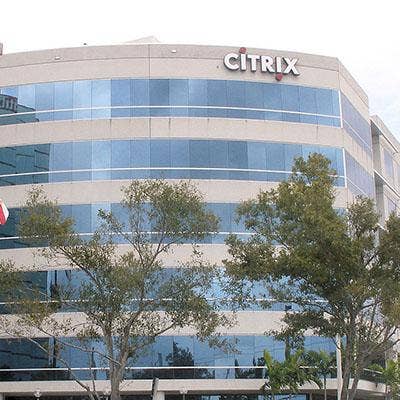
What did the world need to know about Citrix?
The world didn't know that Citrix is a networking business. I didn't know that Citrix has NetScaler. The world didn't know that Citrix had ShareFile. And I think the world at large was somewhat confused. Lots of people knew Citrix as a virtualization company and millions of people around the world were running on Citrix every day. And yet at the same time all of the advertising was filled with GoTo. And people just didn't understand what was going on.

Was the marketing emphasis at that time on the GoTo product line misguided?
It was unhelpful. There was so much effort that the company had to spend explaining why GoTo and the rest of it fit together. And as I was learning the company a little over a year ago and reading white paper from white paper and watching video from video, I thought, this does not make sense.
Why do you keep on explaining it and pulling it together? They just don't belong.
So the decision to put it outside of Citrix that was made before I joined was incredibly helpful. It helped us to refocus the company dramatically. That refocusing helped us drive stronger top-line results, not just bottom-line results, because our people just didn't have to waste energy on that explanation, dealing with that.

Did the shift away from emphasizing, and eventual spin-off, of the GoTo portfolio have implications for the channel?
The channel was confused. The energy was diverted. And there were a few smaller pieces like that that just didn't fit, predominantly coming from some past acquisitions. And a lot of this was sold out and a lot of it was shut down and again, largely, all of that was done before I arrived.
When I arrived, the number one job, as I saw it, was to define the framework for Citrix, define what our purpose is, what's our mission, what's our strategy with clarity. And then take a deep look at Citrix culture and see what we need to do there.

How do you communicate those cultural values to partners?
As far as I'm concerned, channel is an expansion of the team. One advantage I have is I joined Citrix coming from a business that was as dependent on the partner channel as Citrix has been over the years. Microsoft Dynamics was essentially a 100 percent partner business. That experience working with a broad global channel helped me tremendously.
At this event [Citrix Summit 2017], I've spent as much time talking about culture with partners as I have with my employees. It's just part of the narrative; they need to live our values. They represent us every time they face a customer.
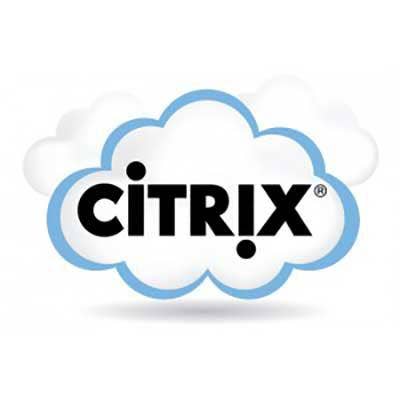
Citrix Cloud has been introduced a few times over the last couple years in various incarnations. How large a part of the business does that new product represent?
It can become a majority of our business. I believe by 2020 more than half of new customers will be joining us in the cloud. That's the transformation that I see.
Before, it was kind of an add-on to the existing on-prem product. It was not given the level of attention that cloud transformation demands.
In 2016, I'd say somewhere around March, April, we embarked on this massive cloud transformation of the company. And we made it very clear at Synergy in May that Citrix Cloud is the most important priority for Citrix and for everyone who works with us. It was a very hard shift. This was almost 180 degrees from where the company was before that. All I saw since it happened is the cloud transition has accelerated. And now we're in the environment where every customer conversation is about cloud.
Were the previous release stumbles around Citrix Cloud due to the product itself or how it was being positioned?
It was cultural. It was product itself. It was resource allocation. It was a broad range of things. It is fear that the partner channel would be scared of cloud, therefore we're not going to do it, therefore we're going to introduce this control plane and we're not going to do the full cloud. All of that was in place. But it was clear to everybody that we needed to rip the cord and go full cloud, end-to-end. That's where the journey started. And now we can talk with clarity about what this means for partners, what this means for customers.
I was surprised, and I'm rarely surprised these days, about how many customers chose to go Citrix Cloud instead of just renewing their maintenance.
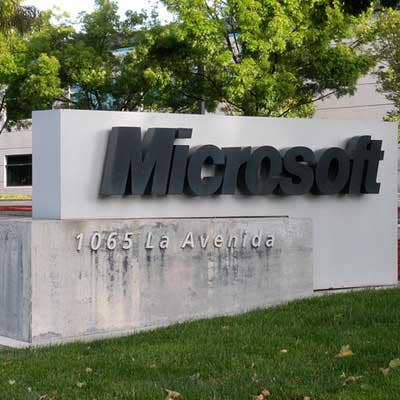
What does the Microsoft relationship mean to you and how should partners think about it?
It's a huge opportunity for partners. Partner channel being an extension of Citrix, that's why we put so much energy into elevating this partnership into being the strongest ever. From the customer perspective, it's only logical for somebody who wants to run their workspaces in the cloud, if those workspaces are Microsoft-related to run it from the Microsoft cloud. So that partnership made a whole lot of sense. And that's what customers wanted us to do.
When you look at the history of Citrix success, Microsoft was part of it for the longest time. It just happened that there was some confusion in the relationship back in 2014 and 2015 that was very easy to address. There's no reason for that confusion from the top down.
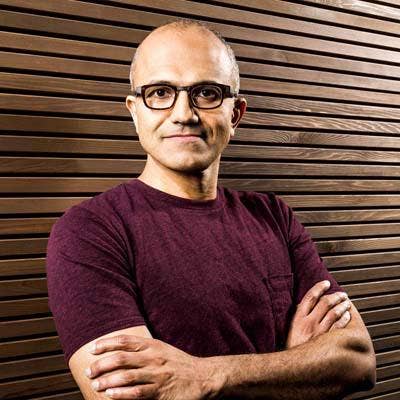
How was the alliance with Microsoft reinvigorated?
[Microsoft CEO] Satya [Nadella, pictured] was one of the first people I called when I got this job. From that point on we went forward and structured this terrific, multi-faceted relationship that basically touches every part of the Citrix portfolio and enables us to do truly amazing things.
Microsoft field and Microsoft partners and Microsoft sellers call on Citrix to help them [in implementing VDI].
There's another very interesting element that's starting to unfold and pick up momentum: Skype for Business run virtualized. The technology that we build, HDX optimized Skype for Business, enables organizations of significant size, like 100,000-plus people, to run Skype for Business virtualized with improved performance.
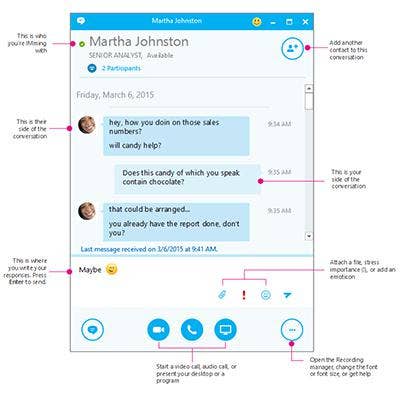
What are the advantages of running Skype for Business in a Citrix virtualized environment, rather than the standard Office 365 offering?
Two things. In regulated industries, you don't want any residue on the device. You're just not allowed to have it. It all needs to stay on the server. And Skype for Business client in a normal setup leaves all the chat sessions stored on an endpoint.
Second, the biggest cost for internal help desk calls is because of differences in user experience. Virtualizing Skype for Business enables IT to basically provide a uniform client that is much easier to support.

How have impressions of the overall business changed since the time you were hired?
It's a big question. Contrary to what people thought even a year, year and a half ago, Citrix has tremendous staying power. A year and a half ago, people felt that virtual client computing will be wiped out and will disappear. And it turns out it has by itself staying power.
The one true way to secure an endpoint is not to put anything on it.
How do you do it? You do it by running it remotely and virtualizing the application and just imaging it to the endpoint. The growth that we saw in Workspace Services, this core part of Citrix business in the last couple quarters, is testament to that phenomena starting to work.

So virtualization technology is still relevant in the era of the cloud?
Yes, but it's beyond that. The staying power of Citrix is giving people secure access to any app and helping them construct workspaces that consist of any app, whether it's a web app, virtualized app, mobile app, micro-services constructed app, and that spans network gateway, network access, obviously all the virtualization and mobility management technology and all of the file sharing and fill access technologies.
All of that combined gives Citrix the ability to deliver Workspace-as-a-Service and for IT to serve employees of their organizations with consistent workspaces that can all be delivered from Citrix Cloud. That's the staying power of Citrix and that's very different from where we were even a year ago.
And then there's a second very important angle to that, and that is cybersecurity. One surprising element I discovered very quickly upon joining in many meetings with customers is that every single existing customer at scale told me, 'We think of you as a security vendor, you provide more security benefit to us than most of the other players in the industry who portray themselves as security vendors. Why aren't you positioning yourself as such?'
Obviously, on the flip side, no new customer would choose Citrix to help them solve a security issue because there was no message.

How do you convey the security message?
In September 2016, we had our analyst event, and at that analyst event we deliberately piloted that new positioning presenting Citrix as a security player. And everybody said it was way overdue and we need to get on it and start doing it. And today, this morning, that was a pillar of our strategy. Every single partner and every single Citrix employee at this event [Citrix Summit 2017] will walk away trained as to how they can tell the Citrix story as this modern security vendor.
We've not been telling the story, and now we will.